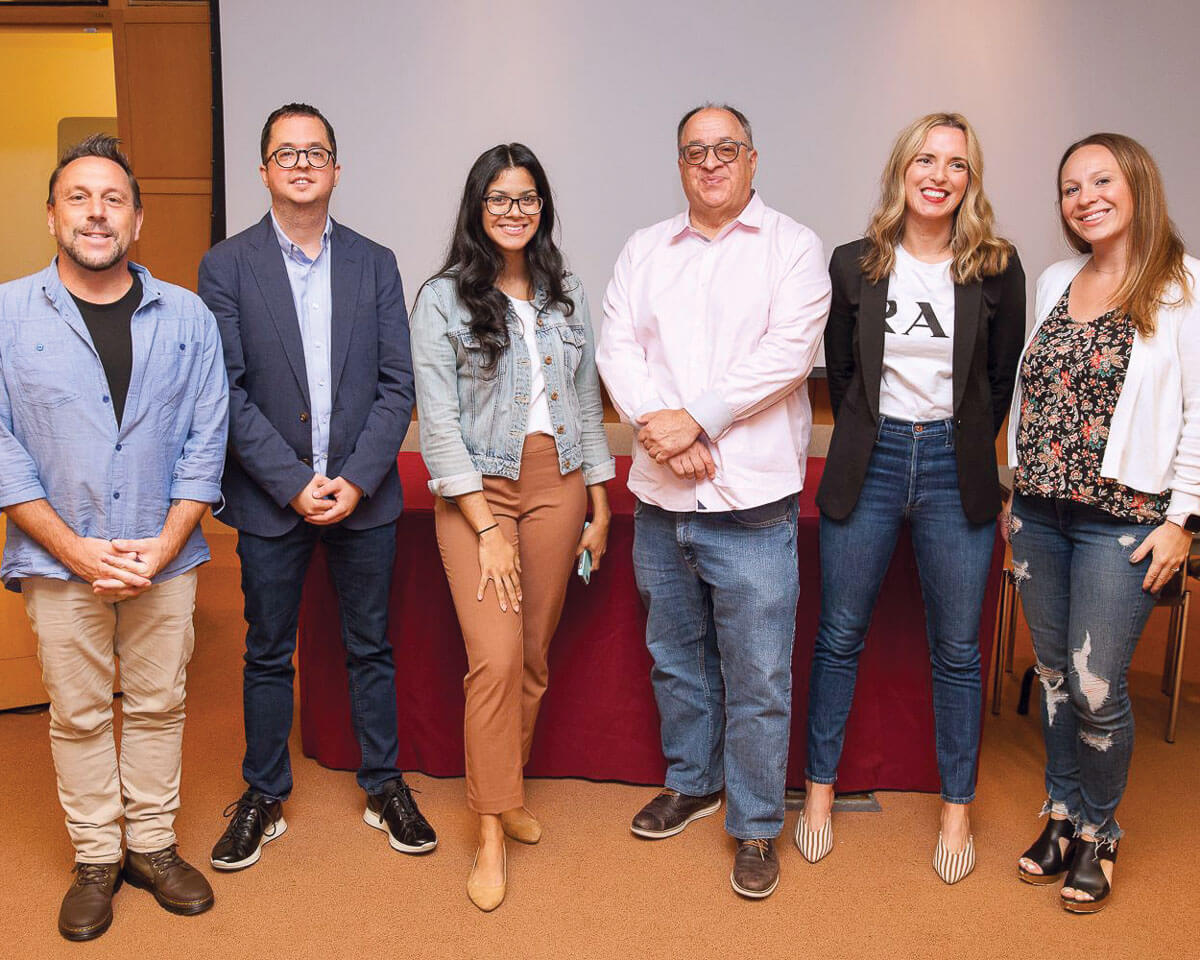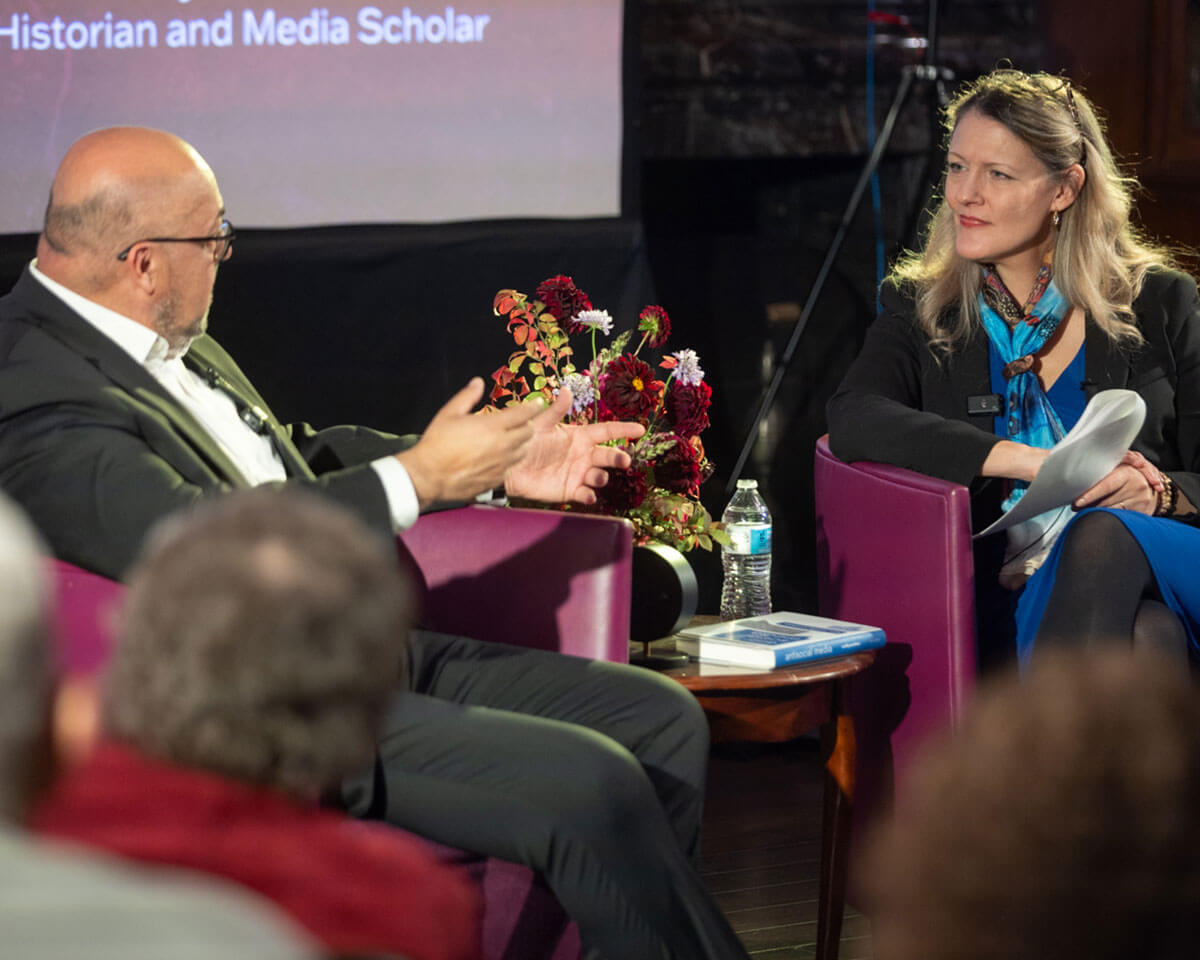Lonnie Burstein chuckles when he recalls the time long ago when he was trying to figure out what he was going to major in. “I wanted to go into theater,” he says from his home in Los Angeles. “As soon as I got to the college, I realized it was a whole different world. In high school, it was all your friends putting on the school functions. And it was a lot of fun. At college, it was unbelievably competitive, and it stopped being fun immediately.” He dropped out.
Burstein returned to the college as a physical education major, with an eye on coaching swimming, having been a competitive swimmer in high school. But he dropped out a second time, when he realized he’d have to take the same undergraduate courses as premed students. The third time was the charm. “One of the courses I had taken was Television and Radio 6.5, and I had gotten an A in it. I decided to major in television and radio; I liked it, and it was similar to theater, my original passion.”
This ability to discern what he was good at and what could bring him career success and satisfaction was something Burstein carried with him after he graduated in 1982.
Looking to be a sports producer, he interned at a sports channel on Long Island. He impressed his bosses, but the field was a difficult one to break into. A friend got him an interview at a television rep company that sold advertising to stations across the country. The company was not top-tier, but it was small, and a good place to meet leaders in the industry and “fake it until I learned,” says Burstein.
Burstein went on to become the program director of the Fox TV station in Philadelphia. Two years later, when Paramount bought the station, the now-seasoned rep moved on. Burstein became head of television research at MCA Universal Television in Los Angeles, swapping the East Coast for the West, his home now for 30 years.
Today he is the executive vice president of programming and production for Debmar-Mercury, responsible for syndicating South Park, Key & Peele, Family Feud, American Chopper, The Wendy Williams Show, and recently, The Nick Cannon Show, among other programs.
“Because we’re a small company, some 20 employees, I’m kind of a jack-of-all-trades,” says Burstein. “I am executive vice president of programming and production, but along with production, I also oversee all the research, I do legal, I negotiate all the deals. Every now and then, if you need me to take out the trash, I guess I could!”
Burstein has not forgotten Brooklyn College or the decision he made to major in television and radio (today, television, radio & emerging media) and has consistently found ways to give back to his alma mater.
“Brooklyn College has worked with me to create a scholarship,” he says. “It’s not anything large, but it’s something that I’m very proud of. The only requirements to be eligible are that you have to be a television, radio, and emerging media student, and that you have to come from the New York City public school system.”
“Lonnie Burstein has been generous to us in TREM, and our majors benefit from that in several big ways,” says Katherine Fry, professor and department chair of Television, Radio & Emerging Media. “The scholarship in his name has helped deserving students continue and complete their degrees. Beyond that, Lonnie has arranged internships for our majors at Debmar-Mercury, and has organized panels of industry folks to speak to our students about their work, how they got started, and to answer their questions. Lonnie’s warmth and generosity are invaluable to us. We are grateful.”
Through what is now the Brooklyn College Career Center, Burstein has worked with the college to place interns at the Wendy Williams and Nick Cannon shows, and to have interns hired into entry-level positions after they graduate. Of the panels he organizes he says, “That is something I would have appreciated as a student, having someone talk to me about real-life experience.” To that end, he brings industry colleagues, such as the head of programming for Fox TV stations and an executive producer for The Wendy Williams Show, along with him. When the pandemic hit, he switched to Zoom. Because panelists did not have to travel, he could open the virtual Q&A to a wider group of industry folk. “It was really fun,” says Burstein. “The Zoom format worked phenomenally. Still, I look forward to going back and bringing people on campus; I do enjoy that.”
Return to the BC Magazine



